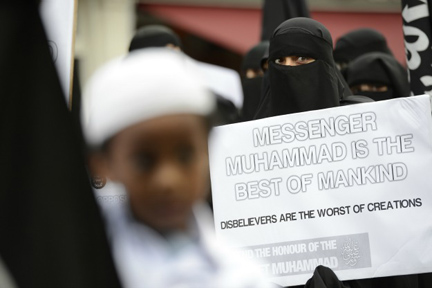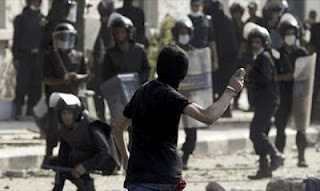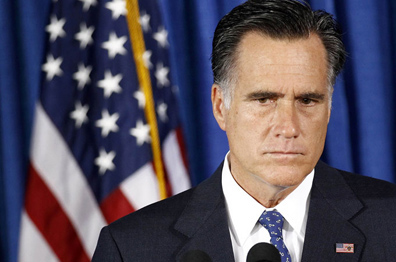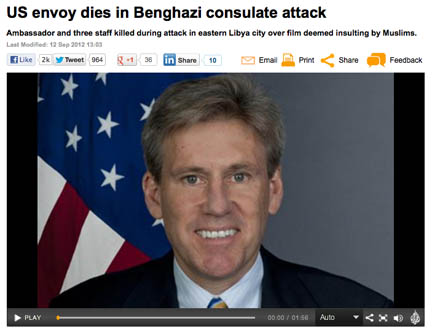
by Will McCants, Foreign Policy, The Middle East Channel, October 12, 2012
Salafis, or Sunni puritans, have been much in the news since they sparked riots at U.S. embassies throughout the Arab world protesting film clips lampooning the Prophet Muhammad. A television personality on a Saudi Arabian-funded Salafi satellite channel in Egypt first fanned the flames, and Salafis ranging from the militant Mohamed al-Zawahiri (the brother of al Qaeda’s chief, Ayman al-Zawahiri) to the mainstream Salafi political party al-Nour fueled the blaze when they blamed the U.S. government and called for protests against U.S. embassies. Salafis in Egypt, Tunisia, Libya, and elsewhere took up the torch, resulting in attacks on U.S. and other Western diplomatic installations across the Middle East.
Others were involved, of course, and the protests were small compared to the protests over the Muhammad cartoons several years ago. Nevertheless, the Salafi-driven protests are one more sign the ultra-religious right is asserting itself as the guardian of the moral order in Sunni-majority countries revolting against the ancien régime. Their noisy performance on the public stage poses a major challenge to emerging democratic systems, fueling polarization inside and fears abroad. But the new political realm also poses challenges to the Salafis who are on unfamiliar ground politically and ideologically.
To understand the political behavior of Salafis today, keep four things in mind: their religious beliefs do not predict their political behavior; they are a minority in almost every Middle Eastern country; the countries where they are a majority are incredibly wealthy; and their appeal and power arises from their commitment to an ultraconservative creed that is out of step with the mainstream. Continue reading A new Salafi politics






